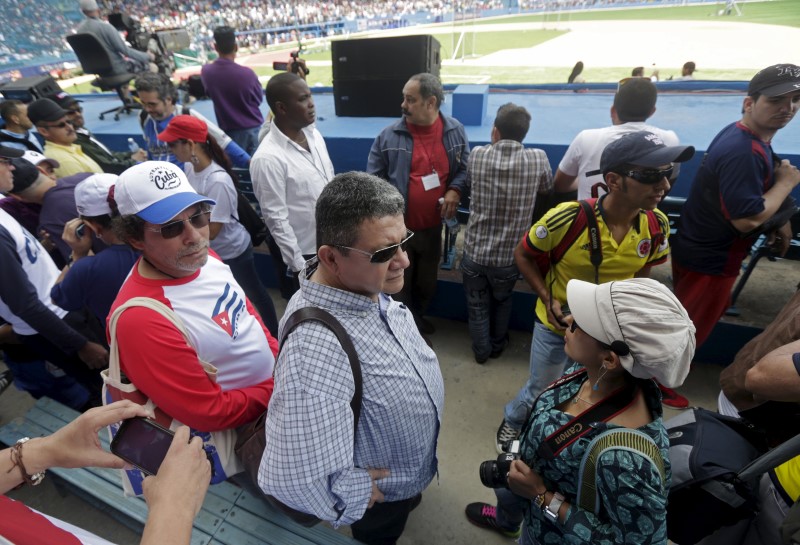By Frank Jack Daniel
HAVANA (Reuters) - Colombian peace negotiators missed Wednesday's deadline for a final accord but talks will continue in Havana to end Latin America's longest war, representatives of the government and the FARC rebels said.
The government of Colombian President Juan Manuel Santos and leftist rebels of the Revolutionary Armed Forces of Colombia, or FARC, had set a self-imposed March 23 deadline to reach a comprehensive pact.
"In all honesty, we have to inform the public that at the moment there are still important differences with the FARC," Humberto de la Calle, the government's lead negotiator, said at a news conference.
"We are going to make every effort to reach a final agreement. But this requires quick decisions," a clearly frustrated de la Calle said, adding that talks that have already stretched for more than three years could not be indefinite.
Latin America's longest war has killed some 220,000 people and displaced millions of others since 1964.
The conference was held hours behind schedule as the two sides unsuccessfully tried to agree on a common statement and produce a roadmap towards peace.
Instead the government and the FARC issued separate communiques.
"We are acting with the idea of building a good agreement, to make 2016 the year of peace, the year of the end of war in Colombia," said the FARC's lead negotiator Ivan Marquez.
Talks are due to restart on April 4.
Both sides recently said the deadline was unlikely to be reached, in part because of rebel security concerns and disagreements about the location of safety zones where the fighters can hand in their weapons after a ceasefire is declared and during their transition into democratic politics.
Earlier on Wednesday another rebel negotiator, Pablo Catatumbo, raised concerns that right-wing paramilitary groups he blamed for a spate of killings in Colombia might pose a threat to the FARC once it disarms.
On a previous FARC attempt to give up arms for legal politics, in 1985, hundreds of their former combatants were assassinated.
Any final deal would be placed before Colombian voters for approval, with a U.N. mission supervising rebel disarmament.
U.S. Secretary of State John Kerry met the negotiators on Monday in Havana, including the FARC for the first time, during President Barack Obama's historic trip.
The rebels expressed gratitude for U.S. involvement, which they said might help move negotiations forward and protect their fighters once they disarm.

In January, the United States co-sponsored a U.N. Security Council Resolution to set up a mission of unarmed international observers to monitor and verify eventual peace.
(Additioanl reporting by Nelson Acosta; Editing by Daniel Trotta and Andrew Hay)